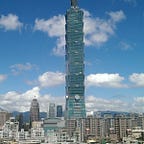HILD 12 — Discussion 4
I believe that the impetus behind many Koreans’s decision to adopt active resistance against Imperial Japan was the oppressive colonial policies imposed upon the Korean people. The Japanese government played an active role in facilitating the exploitation of Korean people. For example, the government actively subsidizing Japanese corporations to monopolize Korean lands (particularly fertile agricultural land), thus depriving the livelihood of their original Korean inhabitants and in a sense, commodifying desperate and jobless Koreans into an easily exploitable labor population that is bound by wage-slavery. The Japanese government also actively suppressed expressions of Korean culture in an attempt to assimilate the peninsula. In general, “Koreans experienced a decade of minimal rights” since the peninsula’s annexation in 1910 (Shin 1).
Thus, the Declaration of Independence of March 1, 1919, was a direct response to years of colonial injustices and addressed such issues of exploitation and suppression of the Korean people — it characterized not just the Korean people, but the whole Korean nation as “a victim of… aggressive and coercion” that has fallen from its former grace, and called for the “affirmation of the principle of equality of all nations” to declare that the Korean deserved the same rights as any other people — directed to their Japanese overlords, of course, who had established an unequal relationship, but also as an appeal to the international community (“Declaration of Independence,” 2). The Declaration also asserted Korea as an equal amongst the nations of the world by describing the relationship between the peninsula and Japan not as colony and imperial master but a “union of… two countries” in another clear attempt to establish a Korean national consciousness (“Declaration of Independence,” 3). Personally, I believe that these rhetoric was critical in establishing a foundation for national self-identification that greatly influenced Koreans to take direct action, especially considering the fact that the Korean intelligentsia — as Shin mentioned — eagerly adopted Woodrow Wilson’s idea of self-determination (1). By emphasizing the plight of the Korean people in contrast to a more prosperous, glorious past and establishing the idea of a ‘Korean nation’ as fact, the Declaration in effect capitalized the wave of unity and solidarity experienced by Koreans and channeled years of discontent into a singular mode of expression — nationalism. Furthermore, I believe that its incorporation of ‘international language’ — that being references to the international community and the idea of an inherent, universal set of rights afforded to all people — helped catalyze the aforementioned Korean national consciousness by creating direct parallels between oppressed Koreans and other oppressed and unoppressed peoples of the world. In essence, this parallel allowed Koreans to reflect upon their place in the world using other nations (as in national identification, and not actual polities or states) as references.
On a personal level, I can say that I relate to why the Korean people felt compelled to become active participants. Now, let’s just say that over the course of the past decades or so a neighboring country has been — but is also becoming increasingly — belligerent and is actively threatening my way of life with political rhetoric and saber-rattling. I found myself increasingly engrossed in things like politics, international relations, foreign and defense policies as a way to understand my place — and my birthplace’s role— in the world. It was most definitely a surprising development, seeing how I had interest in neither of those things until the past 5 years or so. The conception of a generalized, foreign enemy is potent — whether this concept is founded upon lies, possesses a modicum of truth, or is a legitimate claim — I can understand why the Korean people believed that the only way to overturn ever-increasing deprivation of their rights was through direct action.
